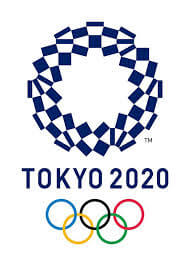Gary Hall Jr. Calls On FINA To Adopt ‘Precautionary Steps’ As Coronavirus Hits Tokyo 2020 Olympic Preparations

Editorial content for the 2021 Tokyo Olympic Games coverage is sponsored by GMX7.
See full event coverage. Follow GMX7 on Instagram at @GMX7training #gmx7

As the spread of the coronavirus forces Tokyo 2020 Olympic Games organisers to reshuffle the schedule of test events on the way to the main show in July, Gary Hall Jr has urged FINA not to fall into the same pattern of behaviour that he sees as having contributed to the death of Fran Crippen and illness among other swimmers.
The Olympic 50m freestyle champion of 2000 and 2004 tells The Washington Post:
“The safety and health of the athletes are of foremost importance. If there are any precautionary steps that can be taken to put them out of harm’s way, we have to do it.”
Hall, using his agency and Athlete Voice, cited cases in which FINA, the international regulator for aquatic sports, was not what the Post referred to as “aggressive enough in protecting its athletes from environmental hazards — whether excessive heat, pollution or virus”.
Several swimmers fell seriously ill after competing in the open-water test event for the 2016 Rio de Janeiro Games because of pollution in the bay, Hall noted.
Of late, calls from the open water community and safety advocates to have the Tokyo 2020 marathon swim venue shifted north in the same way that the International Olympic Committee (IOC) and Tokyo 2020 organisers have move the marathons for runners and walkers to avoid the risks associated with extreme heat.
Lessons From Tragedy

Fran Crippen – Never Again … a 2015 Swimming World cover … and since then, races under FINA rules have been held in waters over the 31C limit – Photo Courtesy: Swimming World Magazine
Fran Crippen died during a 2010 open-water FINA World Cup 10K swim off the coast of the United Arab Emirates. The event went ahead despite dangerously warm temperatures. Fran Crippen’s death was linked to heat exertion, while the race in which he died was moved from one venue to another far away the day before competition and held under rules that obliged any who wanted to claim their season and series earnings to finish the race. Several other swimmers also received medical treatment, some in hospital, after the race off the coast of Fujairah.
Two reports pointed to organisational failures, including a lack of vigilance on the water. Regulations were changed, including the establishment of a 31(.0)C upper limit on water temperatures for all open water events held under FINA rules. That rule has been broken on several key occasions in the intervening years, as noted by the parents of Fran Crippen, Pat and Pete, and the swimmer’s coach Dick Shoulberg.
Hall notes with a nod to Fran Crippen’s death and health problems among open water swimmers on the way to Rio 2016:
“Both of those [matters] were preventable. FINA could have said, ‘The water is too polluted in Rio; let’s do it elsewhere.’ But they went ahead anyway and overlooked the health and safety of the athletes, with devastating consequences.”
Swimmers were among athletes in China at two FINA Champions’ Swim Series events at the time of the outbreak of a coronavirus that has an incubation period of five and more days. It is not known whether those athletes and accompanying coaches and officials were advised by FINA to submit to precautionary tests. FINA officials are covered by health insurance packages paid for by the international federation. Athletes are not covered in the same way.
FINA’s events calendar includes more than 20 Olympic qualifier events in the coming three months, including the FINA Artistic Swimming World Series 2020 in Suzhou, China, and the FINA Artistic Swimming Olympic Games Qualification Tournament 2020, in April.
Swimming World has asked FINA for comment on Halls’s comments and any advice it may have given to athletes and others travelling for and involved in international competition .
Olympic Qualifiers, World Championships & Test Events Delayed And Moved
The fast-spreading coronavirus is wreaking havoc with preparations for Tokyo 2020. On Wednesday, the Feb. 12-13 World Indoor Track and Field Championships in Nanjing were postponed until 2021 out of concern over the coronavirus.
The decision was made by World Athletics, formerly the IAFF track and field’s international governing body, which noted in a statement:
“The advice from our medical team, who are in contact with the World Health Organization, is that the spread of the Coronavirus both within China and outside the country is still at a concerning level and no one should be going ahead with any major gathering that can be postponed.”
The count of those who have died as a result of the coronavirus has now exceeded 200, with around 10,000 confirmed cases and ‘suspected cases’ exceeding 15,000 as of Friday morning GMT.
The World Health Organization (WHO) has now declared “a global health emergency” and the race is on to contain and find a way of combatting the virus, which can be passed from animal to human and human to human.
Coronaviruses are part of a large family ofviruses that are common in many different species of animals, including camels, cattle, cats, and bats.
It s thought that coronavirus spreads in the same fashion as MERS and SARS: mainly via respiratory droplets produced when an infected person coughs or sneezes, similar to how influenza and other respiratory pathogens spread.
The exact nature of this latest virus is still being investigated, its transmissibility, severity, and other features associated with 2019-nCoV all under scrutiny.
In the U.S., the Centers for Disease Control and Prevention started the week with a recommendation that travellers avoid all “nonessential” travel to China.

Photo Courtesy: Tokyo2020
Days later and official advice in many countries is for non-essential travel to be avoided. That will require athletes and sports teams and programs to reconsider training plans and camps and test events on the way to trials and the Olympic Games.
The Washington Post cited Han Xiao, a table-tennis player and chair of the United States Olympic and Paralympic Committee’s (USOPC) Athletes’ Advisory Council, as saying that there had been little conversation with prospective U.S. Olympians about coronavirus safeguards. He told the paper:
“We are in favor of moving or rescheduling events in order to protect the health of athletes, as long as there is communication to the athletes and the athletes are included in the decision-making process.”
The first qualifying event for the Tokyo 2020 boxing competition, originally scheduled for Wuhan in early February, has been rescheduled for Amman, Jordan, in early March because of coronavirus fears.
The BBC reports that FIBA, basketball’s international governing body, has moved an upcoming Olympic women’s basketball qualifying tournament involving Britain, China, South Korea and Spain from Foshan, about 600 miles south of Wuhan, to Belgrade, Serbia, over coronavirus concerns.
Olympic qualifying Group B stage matches in women’s soccer have been moved twice — first from Wuhan to Nanjing and then to Sydney after the Chinese Football Association withdrew as host as the virus took off.




